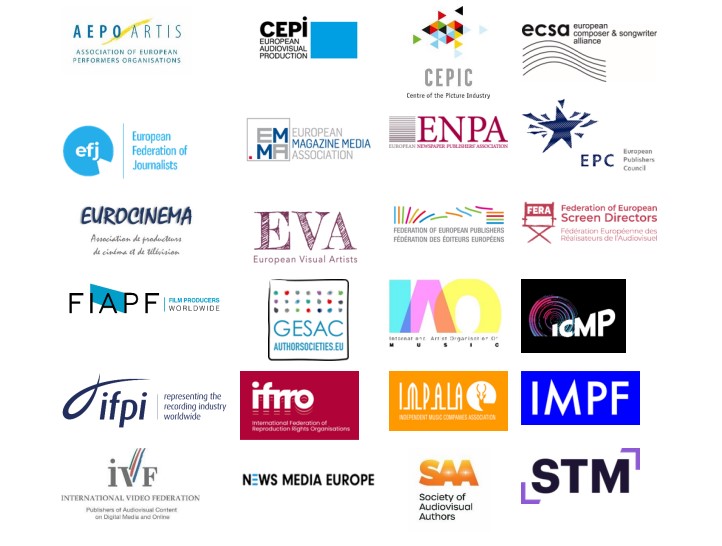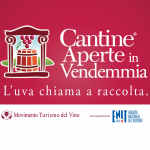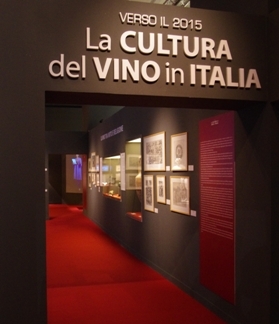Confindustria Cultura Italia (CCI) si unisce all’appello delle organizzazioni europee delle industrie culturali e creative (allegato) che chiede un’implementazione efficace dell’AI Act, tale da consentire una forte tutela sulle opere protette rispetto al loro utilizzo per l’addestramento dei modelli di intelligenza artificiale.
Le industrie culturali e creative, come ricordato nell’appello, sono essenziali per garantire la diversità culturale e la libertà di espressione nell’Unione Europea e, allo stesso tempo, ne sono un prerequisito. Ma oggi queste industrie si trovano a dover affrontare una situazione particolarmente difficile e dannosa, dove le aziende di AI generativa prelevano i contenuti protetti senza autorizzazione su larga scala per sviluppare i loro modelli. Le loro azioni si traducono in guadagni commerciali illegali e vantaggi competitivi ingiusti che favoriscono i loro modelli, servizi e prodotti di intelligenza artificiale, in violazione delle leggi europee sul copyright.
L’attuazione e l’applicazione del nuovo AI Act offre un’opportunità cruciale per affrontare tali pratiche scorrette, favorendo la realizzazione di un mercato delle licenze sano e sostenibile che incoraggi l’innovazione responsabile, garantisca un’equa concorrenza di mercato e una giusta remunerazione per i creatori e i titolari di diritti, impedendo in maniera efficace gli usi non autorizzati delle loro opere.
Per raggiungere questo obiettivo, le regole previste dall’AI Act – dall’obbligo per i fornitori di modelli di intelligenza artificiale di rendere disponibile al pubblico una sintesi sufficientemente dettagliata dei contenuti utilizzati per la formazione dei loro modelli all’obbligo per tali fornitori di dimostrare di aver messo in atto politiche per rispettare la legge UE sul copyright – devono essere rese efficaci.
Questo non è solo essenziale per salvaguardare il valore dei contenuti creativi europei, ma anche per garantire che i servizi di intelligenza artificiale generino output basati su input di alta qualità, diversificati e affidabili. Per questo CCI si unisce all’appello che chiede “il continuo supporto” dei legislatori per tradurre i principi dell’AI Act “in misure concrete nella prossima fase di attuazione per garantire un quadro equo e giusto, in cui l’innovazione dell’intelligenza artificiale nell’UE salvaguardi e rafforzi anche le industrie culturali e creative”.
JOINT LETTER OF CREATORS AND RIGHTHOLDERS ORGANISATIONS
Calling for a meaningful implementation of the AI Act to enable creators and rightholders to exercise and enforce their rights when it comes to ingesting and copying copyright- protected works for training by AI models.
Brussels, 29 October 2024
Dear Members of the European Parliament,
Dear Executive Vice-Presidents and Commissioners-Designate,
Dear Representatives of the Member States,
We are writing to you as a broad coalition of creators and rightholders active across the EU’s cultural and creative industries to reiterate our support for the aims of the AI Act and to encourage you to promote and oversee its effective and meaningful implementation.
The AI Act is a pioneering model of ethical and responsible AI regulation that sets the basis for best practice at global level. If implemented and applied effectively it will foster an environment in the EU where AI innovation can develop in an ethical and accountable way alongside flourishing cultural and creative industries across the EU.
As cultural and creative industries, we are both essential and a prerequisite for cultural diversity and freedom of expression in the European Union. We invest in and embrace cutting-edge technologies (including for many years now Artificial Intelligence systems and products), we drive significant economic growth in Europe and bolster Europe’s global competitiveness.
However, we are contending with the seriously detrimental situation of generative AI companies taking our content without authorisation on an industrial scale in order to develop their AI models. Their actions result in illegal commercial gains and unfair competitive advantages for their AI models, services, and products, in violation of European copyright laws.
The implementation and application of the EU’s new AI Act provides a crucial opportunity to address such malpractices and ensure accountability in the AI industry. It should aim at achieving a healthy and sustainable licensing market that encourages responsible AI innovation and complies with core principles of fair market competition and remuneration for creators and rightholders, while effectively preventing unauthorised uses of their works.
To achieve this, the rules provided in the AI Act – from the obligation for general purpose AI model providers to make publicly available a sufficiently detailed summary of the content used for training of their models to the obligation for such providers to demonstrate that they have put in place policies to respect EU copyright law – must be made meaningful. As is made clear under the AI Act, these measures should enable creators and rightholders to exercise and enforce their rights when it comes to ingesting and copying copyright-protected works for training by AI models.
This is not only essential for safeguarding the value of Europe’s world-renowned creative content in a global marketplace, but also for ensuring that AI services generate outputs based on high-quality, diverse, and trustworthy inputs.
We support the standards you have set in the AI Act that should enable the cultural and creative industries to evolve and thrive. We now ask for your continued support in translating them into concrete steps in the forthcoming implementation phase to ensure a fair and equitable framework, where AI innovation in the EU also safeguards and strengthens cultural and creative industries.
About Europe’s CCIs: The European Cultural and Creative Industries (CCIs) are among the most innovative sectors in the EU. Our economic and industrial strength is global. Beyond creating, producing and offering cultural works and services that nourish our daily lives, the European copyright-intensive industries employ over 12.9 million people in Europe, many within SMEs, and contribute more than €934 billion in added value annually, representing 6.9% of the EU’s total GDP1.
Yours sincerely,
1 EUIPO Report on IPR-intensive industries and economic performance in the European Union, 2022
List of signatories
AEPO-ARTIS is a non-profit making organisation that represents 39 European performers’ collective management organisations from 29 different countries. The number of performers (musicians, actors and dancers), from the audio and audiovisual sector, represented by AEPO-ARTIS member organisations is estimated at more than 650,000.
CEPI– The European Audiovisual Production Association, is the voice of independent production in Europe since 1990. Today CEPI represents 19 national film and audiovisual Production associations from 17 European countries, as well as other organisations such as the Pan-European Association of Animation. CEPI role is to represent the interests of independent producers and foster a strong, independent film and television production sector.
CEPIC – The Center of the Picture Industry, federates 600 picture agencies and photo libraries in 20 countries across Europe, both within and outside the European Union. CEPIC’s membership includes large and smaller stock photo libraries, major photo news agencies, art galleries and museums, video companies.
ECSA (European Composer and Songwriter Alliance) represents over 30,000 professional composers and songwriters in 29 European countries. With 59 member organisations across Europe, the Alliance speaks for the interests of music creators of art & classical music (contemporary), film & audiovisual music, as well as popular music. www.composeralliance.org
EFJ – The European Federation of Journalists gathers 58 journalists’ unions and associations in Europe representing 320,000 journalists in thirty-nine countries. The EFJ supports its affiliates to foster trade unions and to maintain or create environments in which quality, journalistic independence, pluralism, public service values and decent work in the media exist.
EMMA – The European Magazine Media Association, is the unique and complete representation of Europe’s magazine media, which is today enjoyed by millions of consumers on various platforms, encompassing both paper and digital formats. EMMA represents 15,000 publishing houses, publishing 50,000 magazine titles across Europe in print and digital.
ENPA – The European Newspaper Publishers’ Association is the largest representative body of newspaper publishers across Europe. ENPA advocates for 16 national associations across 13 European countries and is a principal interlocutor to the EU institutions and a key driver of media policy debates in the European Union.
EPC – The European Publishers Council is a high-level group of Chairmen and CEOs of Europe’s leading media groups representing companies which are active in news media, television, radio, digital marketplaces, journals, eLearning, databases and books. We have been communicating with Europe’s legislators since 1991 on issues that affect the health and viability of journalistically driven media and publishing companies in the European Union which uphold the freedom of expression, media diversity, and democratic debate.
EUROCINEMA Association of Film and Television Producers, aims to defend and promote the fundamental role of the film industry and film-makers in a politically and economically integrated Europe.
EVA (European Visual Artists) represents the interests of authors’ collective management societies for the visual arts. 32 societies are gathered under its roof as members or observers. They manage collectively authors’ rights of close to 170 000 creators of works of fine art, illustration, photography, design, architecture and other visual works. www.evartists.org
FEP – The Federation of European Publishers, represents 29 national books and learned journals publishers’ associations of the European Union and the European Economic Area.
FERA (Federation of European Screen Directors) represents film and TV directors at European level, with 46 member organisations from 31 countries. Founded in 1980, FERA speaks for more than 20,000 European screen directors, representing their cultural, creative and economic interests. https://screendirectors.eu
FIAPF – The International Federation of Film Producers’ Associations’ membership comprises 36 national associations representing producers of films and audiovisual programmes, including 15 national associations from the EU/EEA. Members’ constituencies are involved in the development, production, marketing and in some cases distribution, of all types of films and/or other types of audiovisual productions, ranging from feature-length films, short film, documentaries, television drama and other audiovisual content, across the European Union across all distribution channels.
GESAC – Founded in 1990, the European Grouping of Societies of Authors and Composers represents 32 of the main copyright management societies (authors ‘societies) in the European Union, Iceland, Norway and Switzerland, administering the rights and remuneration of more than 1.2 million authors, composers and writers in a variety of sectors (music, audiovisual, literary and visual and graphic arts) and music publishers. www.authorsocieties.eu
IAO is the umbrella association for national organisations representing the rights and interests of featured artists in the music industry.
ICMP is the global trade association for the music publishing industry. ICMP represents approximately 90% of the world’s commercially released music. Its membership comprises 76 different national associations, across 6 continents, as well as the Major and independent music publishing companies.
IFPI – The International Federation of the Phonographic Industry, is the voice of the recording industry worldwide. IFPI and its National Group network represents the interests of some 8,000 members across the globe.
IFRRO (International Federation of Reproduction Rights Organisations), is an international, independent, not-for-profit organisation representing collective management organisations for text and image materials (known as Reproduction Rights Organisations, or RROs), authors’ and publishers’ associations in the field of text and image-based works. RROs administer reproduction and other relevant rights, including certain digital rights, on behalf of both publishers and authors, including visual artists. With 158 members from over 80 countries, IFRRO plays a key role in the global copyright ecosystem. http://www.ifrro.org/
IMPALA is the European association of independent music companies, representing over 6,000 music SMEs. Its mission is to grow the independent music sector sustainably, return more value to artists, promote diversity and entrepreneurship, improve political access, inspire change and increase access to finance.
IMPF (Independent Music Publishers International Forum) is the global trade and advocacy body for independent music publishers worldwide. IMPF helps to stimulate a more favourable business environment in different territories and jurisdictions for artistic, cultural, and commercial diversity for its music publisher members and the songwriters and composers they represent. www.impforum.org
IVF – The members of the International Video Federation are associations representing businesses active in all segments of the film and audiovisual sector in Europe. The IVF’s membership is thus involved across development, production, marketing, and distribution of all types of films and audiovisual works, ranging from feature-length films, short films, documentaries, television drama and other audiovisual content, as well as the publication of such content on digital media (DVD, Blu-ray, etc.) and through all online channels ranging from transactional (TVOD/EST), subscription (SVOD) and advertisement-based (AVOD and FAST) distribution models.
NME is the voice of the progressive news media industry in Europe, representing over 2700 news brands, online and in print, on radio and TV.
SAA – The Society of Audiovisual Authors is the umbrella association of European collective management organisations representing audiovisual authors. Its 34 members in 26 countries manage rights for over 167,000 film, television and multimedia European screenwriters and directors. The SAA supports audiovisual authors and promote cultural diversity through policies that enable the dissemination of audiovisual authors’ works to the audience. CMOs’ role is to give easy, legal access to those works and ensure authors are fairly paid to encourage further creativity for the benefit of society. www.saa- authors.eu
STM is the leading global trade association for academic and professional publishers. Our mission is to advance trusted research for the benefit of society. The membership is composed of over 140 organisations who are based globally and include academic and professional publishers, learned societies, university presses, start-ups and established players; STM members collectively publish over 70% of all journal articles.
Uff. Stampa Confindustria Cultura Italia – Federazione Italiana dell’Industria Culturale


















